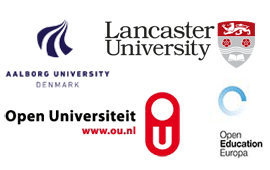

Networked learning: an opportunity to enhance the learning opportunities for students with high functioning autism or Asperger’s Syndrome?
Jane Davis, University of Strathclyde
The purpose of this paper is to consider whether or not networked learning has the potential to enhance learning opportunities for students with high functioning autism or Asperger's Syndrome, through reflective consideration of the cognitive theories associated with a diagnosis of autism spectrum disorder and Passey's (2014) key constructs of learning. In so doing, the paper initially provides a clarification of the criteria for a diagnosis of autistic spectrum disorder, and the problematic issues associated with concepts of high functioning autism. It then presents psychological theories of the autism spectrum and discusses a range of associated characteristics that may prevail when an individual has high functioning autism or Asperger's Syndrome. The paper briefly explores the way in which educational practitioners seek to achieve inclusion for students with high functioning autism or Asperger's syndrome and the ways in which these students may, nonetheless, be implicitly excluded from the academic route that their measured intelligence quotient suggests might be possible. The paper then considers key conceptual lenses that provide insight into constructs of learning, highlighting the way in which the application of such lenses might require adaptation in the light of the cognitive theories of autism. It briefly presents some of the ways in which technology is currently and predominantly used to ameliorate some of the impairments associated with autism and then looks to consider the extent to which various forms of networked learning might extend the academic learning capability of individuals with high functioning autism. The paper also discusses the way in which co-morbidities of autistic spectrum disorder may exacerbate the learning barriers of students with high functioning autism or Asperger's Syndrome and impact upon the affordance that such environments might offer to those students. The paper concludes by proposing suggestions for further research. It also suggests potential development activity that could support a better understanding of the ways in which networked learning might be adapted to support not only students in higher education, but also for those studying at secondary level for whom mainstream or special schooling remains problematic. It further considers the ways in which education research practitioners might engage with autism charitable organisations, international practitioners and clinicians in the field of autism spectrum disorders.
Keywords
High functioning autism, Asperger’s Syndrome, psychological theories of autism, cognitive theories of autism, networked learning
Joint Organising Institutions
| Conference Travel and Accommodation |Doctoral Consortium | Past Conference Proceedings | Contact |